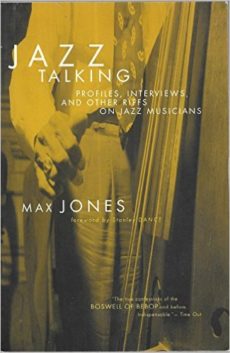
Daily Dose Of Jazz…
Ronald Maxwell Jones was born on February 28, 1917 in London, England and together with his brother Cliff, taught himself to play the saxophone, before the two of them founded the semi-professional Campus Club Dance Band in 1930. Dissolved in 1935 he tried to establish himself as a professional musician, becoming a member of a combo led by trumpeter Johnny Claes, with musicians who played in the style of Coleman Hawkins.
In 1942 and 1943, Max worked for the BBC radio program Radio Rhythm Club; and in 1942, together with authors Albert McCarthy and Charles Fox, founded the magazine Jazz Music, which became meritorious as it set out to reassert the pioneering role of the African-American, to emphasize the music’s social dimensions, and to attack the glossy commercialism of big-band swing.
Since 1944, Jones had a full-time job writing features for the Melody Maker in the column Collectors’ Corner. In the following years he gained more and more high recognition as a proven expert of New Orleans Jazz, swing, and mainstream jazz.
In 1971 Jones published a Louis Armstrong biography, Louis: The Louis Armstrong Story, together with John Chilton. He also wrote a number of liner notes, such as for the CD edition of the Kenny Clarke/Francy Boland Big Band, the Spirits of Rhythm, and wrote the preface for the Lee Collins, Mary Spriggs Collins, Frank Gillis, John W. Miner book Oh, Didn’t He Ramble: The Life Story of Lee Collins. A collection of his articles on musicians such as Coleman Hawkins, Johnny Hodges, Billie Holiday, and Mary Lou Williams was published as a book entitled Talking Jazz in 1987.
Jones was the first jazz musician to become a professional journalist and exclusively dealt with jazz in his publications. He was a model and a mentor for a younger generation of rock music critics and authors. Author, radio host, and journalist Max Jones passed away on August 1, 1993 in Chichester, England.

#preserving genius
More Posts: saxophone
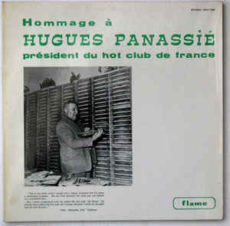
Daily Dose Of Jazz…
Hugues Panassié was born on February 27, 1912 in Paris, France and when he was fourteen, he was stricken with polio, limiting extracurricular physical activities. So he took-up the saxophone and fell in love with jazz in the late Twenties. In 1932 he was the founding president of the Hot Club de France.
During the Germans occupation of northern France the Nazi’sbanned American jazz because they regarded jazz as low music from an inferior people. However Hugues got past the censors by submitting alternate and obscure French titles and continue to broadcast. One example was La Tristesse de Saint Louis, which translates to Sadness of Saint Louis, but in reality it was Louis Armstrong’s The Saint Louis Blues.
Panassié would go on to produce several jazz records by artists that include Sidney Bechet and Tommy Ladnier, author thirteen books about jazz, was an ardent exponent of Dixieland and Black players and a controversial critic of bad musicians such as Benny Goodman’s clarinet being inferior to the likes of Jimmy Noone and Omer Simeon. He dismissed bebop as a form of music distinct from jazz and held in esteem a lone example of a white musician who played jazz authentically in Mezz Mezzrow.
But he was not without his critics and historians who saw him creating a wedge between Black and Caucasian musicians by insisting that Black jazz was superior. He penned the liner notes for a 1956 RCA Victor compilation Guide to Jazz that included 16 recording by prominent jazz artists. After spending five months in New York City, critic, record producer and impresario Hugues Panassié met his assistant Madeleine Gautier, married, returned and settled in Montauban, France until his passing away on December 8, 1974.
Sponsored By

Voices From The Community
![]()
#preserving genius
More Posts: saxophone

Atlanta Jazz Festival… 1996
It’s an Olympic year in Atlanta and the eyes of the world are on the city as it prepares for the Summer Games that took place some 45 days after the jazz festival. Barbara Bowser has once again spearheaded the Bureau of Cultural Affairs and the Atlanta Jazz Festival took place in three locations this year, Woodruff Park, Justine’s Cafe and Grant Park.
With a small band of sponsors great things were accomplished and our thanks went out to Jazz Times, The Atlanta Coca-Cola Bottling Company, Justine’s Cafe, Renaissance Atlanta Hotel, WCLK 91.9 FM and WRFG 89.3 FM for their unwavering support.
Over eight days from May 20th to May 27th we heard the talents of Kamal Abdul Allir, The Rick Bell Quintet, Dave Ferguson, Hunab Ku Quartet, Tom Harrell, Kenny Garrett, Dee Dee Bridgewater, Eric Reed, Christian McBride, Vanessa Rubin, Cecil Bridgewater Big Band with Joe Jennings, Stephen Scott, Kuumba Frank Lacy Big Band, Jon Faddis with Jimmy Heath and Slide Hampton, Stanley Clarke and George Duke. #AJF40
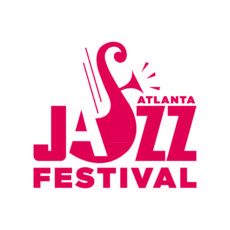
![]()
#preserving genius
More Posts: festival,forty,free,history,jazz,music,tradition,years
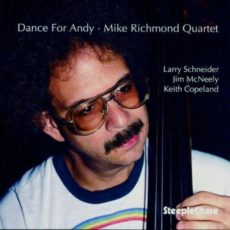
Daily Dose Of Jazz…
Mike Richmond was born on Feb. 26, 1948 in Philadelphia, Pennsylvania and started on guitar but picked up the bass in his early teens. He studied with Edward Arian from the Philadelphia Orchestra during his matriculation through Temple University from 1965 to 1970.
After taking lessons with Jimmy Garrison in the early 1970s Mike began performing with Chico Hamilton and Arnie Lawrence, also working and/or recording with Stan Getz, Jack DeJohnette, Horace Silver, Joe Henderson, Lee Konitz, Hubert Laws, Franco Ambrosetti, Dannie Richmond, Gil Evans, Art Farmer, Woody Herman, and George Gruntz.
In 1980, Richmond devoted time to learning the sitar, traveling to India to record and perform live with Ravi Shankar. He led Mingus Dynasty, replacing Mingus after his death from 1980–1985, and began teaching at New York University in 1988 and honored with Teacher of the Year in 1991 and 1994.
He has recorded ten albums as a leader and another 85 as a sideman, in addition to those mentioned above, with Bob Berg, Jerry Bergonzi, Keith Copeland, Kenny Barron, Ted Curson, Buddy DeFranco, Herb Geller, Chico Hamilton, Roland Hanna, Tom Harrell, Richie Havens, Daniel Humair, Vic Juris, Eric Kloss, Jimmy Knepper, Lee Konitz, Andy LaVerne, Arnie Lawrence, Hubert Laws, Jim McNeely, Mingus Dynasty, Jackie Paris, Bobby Paunetto, Dannie Richmond, Larry Schneider, Ravi Shankar, Ben Sidran, Marvin Stamm, John Stowell, Toshiko Akiyoshi – Lew Tabackin Big Band, Tom Varner, Naná Vasconcelos, Bennie Wallace, Bill Watrous and Eliot Zigmund
Bassist Mike Richmond won a Grammy Award for Miles & Quincy Live at Montreux, his book Modern Walking Bass Technique is used internationally and he continues to perform and record.
Sponsored By
www.whatissuitetabu.com
![]()
#preserving genius
More Posts: bass
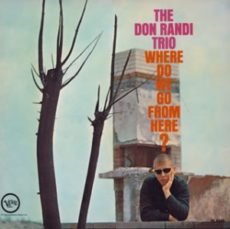
Daily Dose Of Jazz…
Don Randi was born Don Schwartz on February 25, 1937 in New York City and raised in the Catskill Mountains, where he received training in classical music. After his father’s death in 1954, he and his mother moved to Los Angeles, California and the following year he started working at a record distribution company where he heard and became influenced by jazz musicians, particularly Horace Silver.
He began his career as a professional pianist and keyboard player in 1956, gradually establishing a reputation as a leading session musician. By the early 1960s, he was a major contributor, as musician and arranger, to record producer Phil Spector’s Wall of Sound. He became a member of Nancy Sinatra’s touring band for decades and also played piano on These Boots Are Made For Walkin’ as well as every album she recorded, and played on the Beach Boys’ Good Vibrations.
Playing on over three hundred hit records, Don worked with musicians such as Gerald Wilson, Quincy Jones, Cannonball Adderley, Herb Alpert, Sarah Vaughan, Linda Ronstadt and Frank Zappa. He recorded a number albums of piano jazz under his own name and as the leader of a trio with Leroy Vinnegar and Mel Lewis between 1960 and 1968 that included Feelin’ Like Blues, Where Do We Go From Here, Last Night, Revolver Jazz, and Love Theme From Romeo And Juliet. He also wrote film scores for Bloody Mama, Up in the Cellar, J. W. Coop, Stacey, and Santee in the Seventies.
In 1970 he opened The Baked Potato jazz club in Studio City, California, and forming his own group, Quest, serving as the house band. The band subsequently recorded over 15 albums and were nominated for a Grammy in 1980 for the album New Baby. In 2008, as a member of the Wrecking Crew, Randi was inducted into the Hollywood RockWalk.and in 2010 the club was named Best Jazz Club in Los Angeles magazine. Pianist, bandleader and songwriter Don Randi continues to perform, record and releasing his own jazz records.
#preserving genius
More Posts: piano



